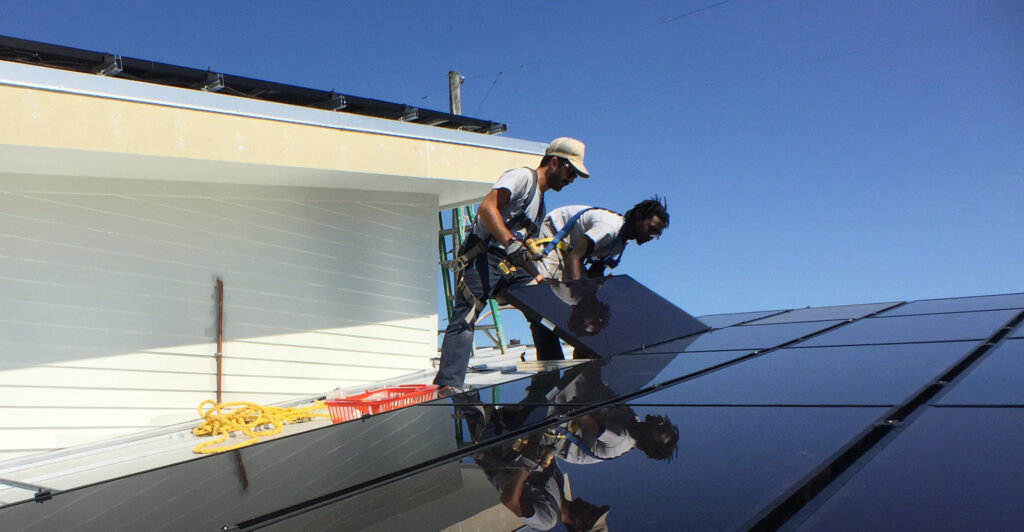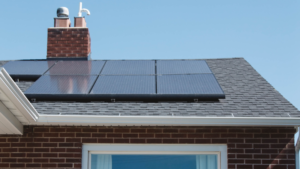The current electricity crisis and rising utility costs are driving homeowners to consider taking their properties off the grid, either partially or completely. Not only do off-grid features provide benefits while living in the home, such as generators, inverters, solar power, water tanks, and boreholes, but they can also increase the value of the property when it comes time to sell, as more buyers are seeking homes with these features.
Inverters and JoJo tanks are currently the most popular features on property buyers’ lists, according to Carol Reynolds of Pam Golding Properties. Green features, such as inverters and JoJo tanks, make a home more appealing to a wider market and can speed up the selling process compared to homes without these features.
Buyers are actively looking for properties with power backup systems, particularly basic grid-tied systems that can run appliances like TVs, lights, and fridges during power outages. Most systems are grid-tied with inverters and lithium-ion batteries, as buyers are less interested in generator backup systems due to noise, fuel requirements, and maintenance.

The value-add on sale depends on the type of off-grid system, its specifications, and the size of its batteries. It can range anywhere from R50,000 to R1 million. An installation that powers basic appliances can add around R50,000 to a property’s value, while a full system that runs the entire house can increase its value by R400,000 to R500,000.
Water scarcity is also a concern, and boreholes are seen as a valuable addition for homeowners, even in areas with sufficient water supply like Cape Town. With frequent power outages, a reliable electricity supply is a priority, making solar panels, solar geyser heaters, inverters, and backup batteries desirable features.
While some sellers have already installed off-grid features, more developers are incorporating energy-producing or energy-saving features in new builds or designing space for future installations. Water filtration systems and inverters with battery backup are common options.
Homeowners in South Africa face the challenge of inadequate water and electricity infrastructure, as highlighted by recent events and the urgent need for clean energy. Off-grid and greening features are now being seen as welcome additions that add value and marketability to a property, especially in higher price brackets.

However, it should be noted that installing solar/battery systems can be expensive, especially for integrated systems. As a result, older and lower-income houses may not have these features, but they are increasingly included in new builds.
The popularity of green and off-grid features in homes is on the rise, with new builds incorporating solar heating, solar geysers, energy-efficient lighting, and appliances. Existing houses are also listing features that have been added by homeowners, including solar geysers, backup batteries, and solar power. However, complete off-the-grid homes are still rare, and hybrid systems are more common.
Although solar heating is valued by buyers, home security and safety features remain a higher priority. The most popular green and off-grid features with buyers include water tanks for rainwater collection, alternative energy supplies like solar and battery systems, solar geysers, gas appliances, energy-efficient lighting and appliances, and indigenous/water-wise gardens.
While South Africa’s climate doesn’t require as much reliance on electricity for heating, the value added by green and off-grid features in a property can vary. For example, a solar geyser and gas stove may increase a home’s worth by around R10,000 to R20,000, depending on the property and neighborhood. More substantial features like solar pool heating and backup power systems would add even more value.

In flood-prone regions like KZN, homeowners are increasingly considering sustainable green features to weather storms and ensure self-sufficiency. Many residential developments encourage solar panels, heat pumps, and water reticulation systems. JoJo water storage tanks are also popular and offer a cost-effective solution for water saving and backup supply during municipal shortages.
For homeowners looking to make their homes more independent from traditional utilities, starting with a JoJo tank connected to the home as a reserve water supply is recommended. Inverters are still the preferred choice for backup power, as generators tend to be noisy and costly to run.
Overall, the demand for green and off-grid features is growing, and incorporating these features can add value to a property and reduce reliance on the local infrastructure.



